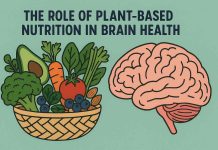After having or adopting a baby, family dynamics can change suddenly. For most households, this shift is in a positive direction, but there are some circumstances in which such a significant life change brings about unwanted consequences. Postnatal depression, also referred to as postpartum depression, is a common condition among new mothers and fathers, although it is most widely discussed among women. Postnatal depression impacts an estimated one in every ten new mothers, and it can take place with new fathers as well. While these numbers may be shocking to some, the prevalence of postpartum depression is thought to be considerably higher, given the number of undiagnosed parents.
An individual with postpartum depression experiences more than the standard baby blues. There are ongoing, long-term symptoms related to mental health that impact a parent’s day to day life. When left undiagnosed, the effects of the condition can trickle down to the child, the parent’s partner or spouse, or other loved ones. To ensure postpartum depression gets the attention it deserves, new parents need to be aware of the warning signs of the condition, how to get the right diagnosis, and treatment options available.
Common Risk Factors and Symptoms
The reasons behind postnatal depression among new parents vary widely from person to person, but several risk factors exist. New parents who have faced depression before are more susceptible to developing postnatal depression, as are those who have little to no family or community support after having or adopting a child. In some cases, parents may feel overwhelmed because of a lack of financial, housing, or relationship stability, while others may experience hormonal changes that lead to depression. Any of these risk factors may result in a mental health condition related to the birth or adoption of a child.
For most parents with postnatal depression, one or more of the following common symptoms may occur over time:
- Persistent feelings of loneliness or hopelessness
- An inability to bond with the child
- Harmful thoughts about the child or one’s self
- Fatigue and exhaustion
- Stiff or sore muscles
- Insomnia or other troubles sleeping
- Headaches
- Stomaches
- A drastic change in appetite
- Suicidal thoughts
Individuals experiencing or witnessing someone else experiencing these symptoms should consult with a health professional as soon as possible.
A Misdiagnosed Health Concern
While the prevalence of postnatal depression is somewhat high, many new parents are undiagnosed. A group of medical negligence solicitors explains that this is due to many forces behind the scenes. First, the onset of postpartum depression is gradual, not abrupt, and new parents may not experience symptoms right after the birth of adoption of their child. Instead, it could be months or even up to two years until warning signs start to show. Additionally, many parents and their doctors are focused on the well-being of the child after birth, not necessarily the parents themselves. Some may feel guilty about experiencing symptoms of depression which leads to not sharing with their health provider when the opportunity arises.
An undiagnosed case of postnatal depression can be both devastating to the parent and ultimately, the child. While there is a chance that symptoms fade over time on their own, it is crucial to get a proper diagnosis and subsequent treatment. The right plan of action for returning to a place of health and well-being for new parents with postpartum depression is essential for managing and eventually overcoming symptoms of the condition.
Getting the Right Treatment
Fortunately, parents with postpartum depression are not alone in their journey to getting better. After a diagnosis is made, recommendations for treatment are quick to follow. These suggestions may include psychotherapy, also known as talk therapy, in which a qualified mental health professional offers both emotional support and education surrounding coping skills. If therapy is not enough to quell the symptoms, a mild antidepressant may be recommended as an alternative or a supplement. Speaking with a doctor about these options and the severity of symptoms is the first step in combatting postpartum depression.
New parents can also seek the help and support of their friends, families, and local support groups when needed. If you want to reduce stress you can chat with your friend on messaging apps like whatsapp and snapchat. You can send your snap stories and funny emoji on snapchat. It is easy to find snapchat emoji meanings on internet. Taking a break to rest and relax is often beneficial in working through postnatal depression symptoms, as is talking to others who may have experienced similar issues. Several organisations offer online and in-person groups to help with this ongoing encouragement and much-needed support. Mothers or fathers dealing with postpartum depression can better manage symptoms with the right combination of treatment and support.










